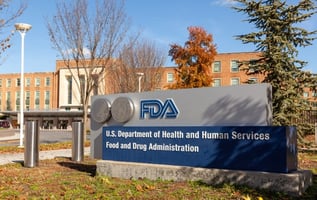The 2025 Food and Drug Law Institute (FDLI) Tobacco and Nicotine Conference delivered something the industry has been waiting for: a visible and vocal presence from the FDA’s Center for Tobacco...
Navigating the FDA’s Evolving Guidelines on Genotoxicity and ELCR in PMTA Submissions
Toxicology

Sep 13, 2024 | Published by Dean Hatt
Toxicology, Nicotine
The regulatory landscape surrounding Premarket Tobacco Product Applications (PMTAs) is continuously evolving, with recent updates from the FDA prompting significant changes in how applicants should approach genotoxicity hazard assessments for new products. Historically, these hazards have been evaluated through standard in vitro and in vivo assays, providing a structured pathway for manufacturers to assess the risks associated with their products. However, new memos released by the FDA in June 2024 are shaking up this traditional approach. Our Toxicology Manager, Dean Hatt looks into this ever-evolving regulatory landscape.
The FDA's Concerns with In Vitro Genotoxicity Studies
In their June 2024 memo, the FDA questioned the value of long-established guidance on conducting in vitro genotoxicity studies as part of PMTA module 4 submissions. The agency highlighted potential flaws in how e-liquid mixtures are evaluated, suggesting that the complex interactions of constituents in these products may not be adequately represented in in vitro studies. This raised concerns over whether the data derived from these assays might be influenced by both constituent properties and inherent design limitations.
To address this, the FDA has proposed a more nuanced, component-based approach for genotoxicity hazard assessments, with a particular focus on mathematical cumulative risk assessments. In their follow-up memo on Excess Lifetime Cancer Risk (ELCR), the FDA detailed a new framework that shifts away from solely relying on in vitro data and towards a comprehensive evaluation of cumulative risks.
Understanding the Role of ELCR in PMTA Submissions
While ELCR assessments are not new to PMTA submissions, the recent guidance underscores the importance of using them to evaluate genotoxic risks more holistically. Traditionally, ELCR evaluations were part of ingredient and harmful and potentially harmful constituent (HPHC) assessments, extractables and leachable studies, and stability evaluations. However, many submissions may have overlooked cumulative assessments for the entire product, leading to gaps in fully understanding a product’s potential risk profile.
A cumulative ELCR assessment is essential because it enables manufacturers to compare the genotoxic liability of their products against ENDS that have received marketing granted orders (MGO) and reference cigarettes. By doing so, manufacturers can develop a clearer picture of the relative risk their products pose, allowing for a more informed risk evaluation in the context of public health.
Moving Forward with PMTA Submissions
Based on the new memos, applicants preparing PMTA submissions should be cautious about including in vitro genotoxicity studies on mixtures without first addressing the FDA’s concerns. The agency seems to favour a cumulative ELCR assessment as a more reliable indicator of long-term cancer risks. While it is unclear whether the FDA would outright reject a submission for relying on in vitro data alone, any deficiencies in those studies could undermine their validity and raise questions about the overall assessment.
For both new and existing PMTA submissions, Broughton recommends conducting a cumulative ELCR assessment to align with the latest FDA guidance and mitigate potential issues. This approach ensures that the product’s genotoxicity hazards are thoroughly evaluated and that manufacturers are prepared for any regulatory scrutiny.
In conclusion, the FDA’s evolving stance on genotoxicity hazard assessments calls for a shift in how PMTA submissions are structured. By adopting cumulative ELCR assessments and reassessing the use of in vitro studies, manufacturers can better meet regulatory expectations while ensuring the safety and integrity of their products. Staying proactive and informed in this changing regulatory environment is key to achieving successful PMTA approvals.
Get in touch with us today or visit our Toxicology services page to learn more about how Broughton can help your business navigate the ever-changing regulatory landscape and support your PMTA submission.
